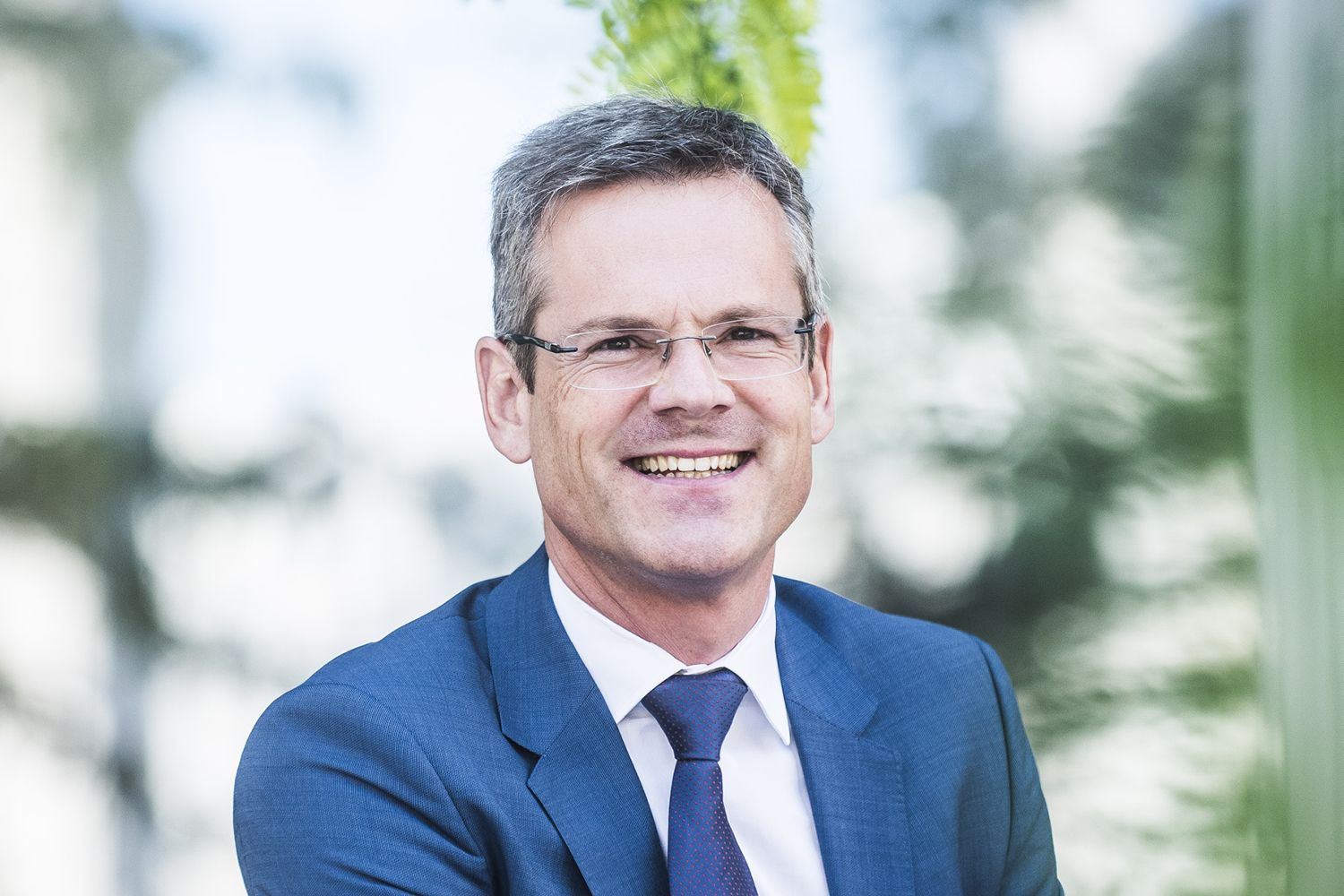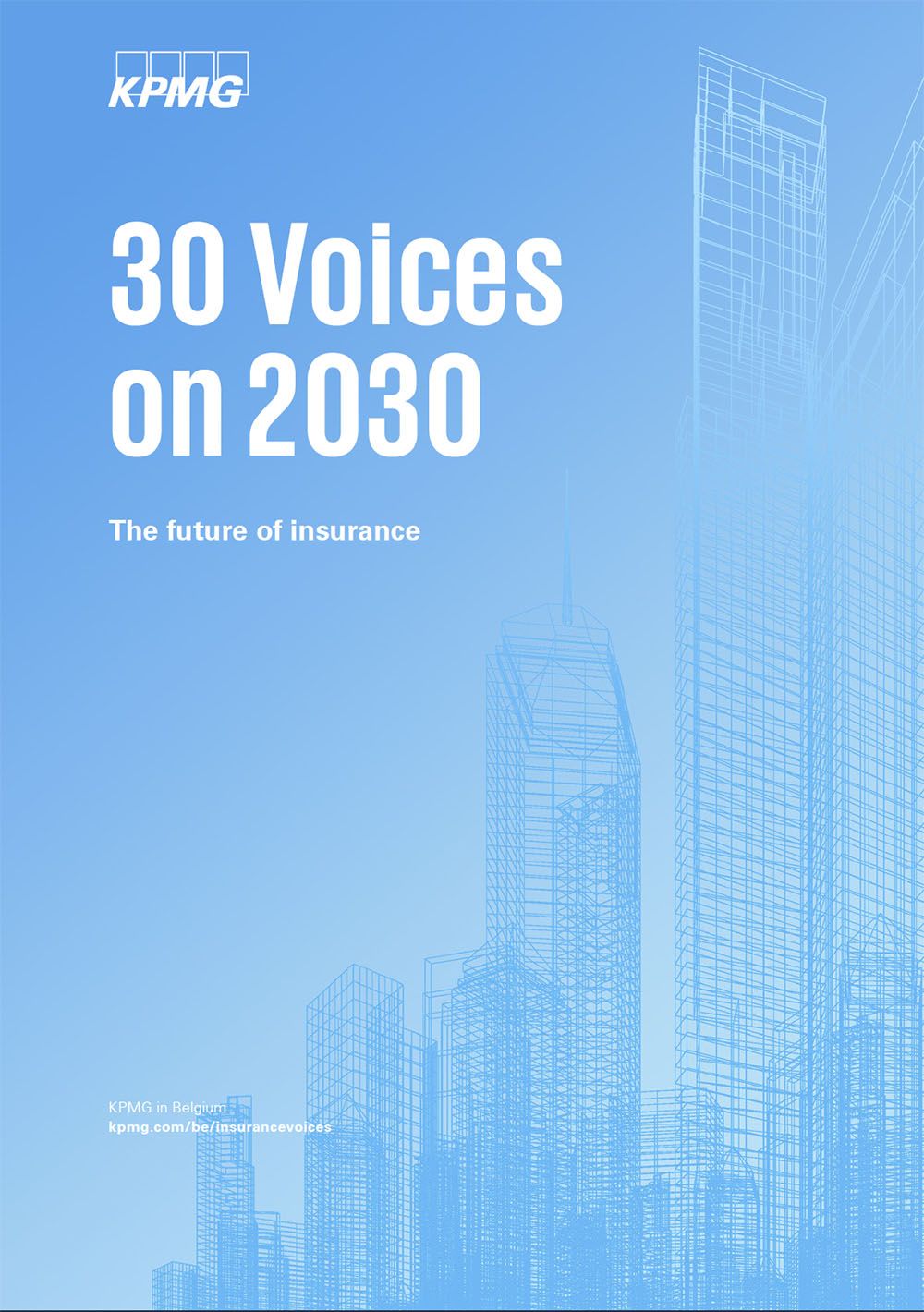Eco systems, new entrants, and greater risks are driving consolidation in the insurance market. But Federale Verzekering is still sailing its own course today in the year 2030, and in doing so, is proving its agility, according to CEO, Tom De Troch.
The step towards more digitalization is the most important evolution our profession has gone through in the past 10 years. In the early 2020s, insurance was still very much a "people business”, where face-to-face contact was very important. During Covid we saw a movement towards digitization, and now we distinguish two major components: the start-up of an insurance contract is still face-to-face - often through a broker, bank-channel, or direct distribution - but the service afterwards is almost 100% digital.

Tom De Troch
CEO of Federale Verzekering
Impossible to follow everything
Meanwhile, the market has also experienced much-needed consolidation. This has created some very large players, with a lot of decisions being made abroad.
But even for big players it’s impossible to keep up with everything that happens and develop everything that is possible. Insurtech has developed at lightning speed, and that speed is too fast even for the big players.
Now, the new tools provided by insurtech face a major difficulty: it’s not as easy as expected to bring them to many customers in a smooth way. Distribution gives these providers headaches. I’m convinced that new and existing players will find each other in the future. The newcomers need distribution, the established players can make good use of the new tools to future-proof their offerings.
The increased risks of climate and cybersecurity have made the government realize that they too have an important role to play in spreading the risks.

New entrants with varying degrees of success
As if that was not enough, big tech has also made attempts to become active in our market in recent years, although we had estimated their impact to be greater a decade ago. In the end, our country turned out to be too small a market for players like Google, with too many regulations.
The attempts made by these players, as well as many others, mainly fit the model where insurance is embedded when you buy a product. Think of a smartphone that is accompanied by insurance. Again, regulation called a halt to the exponential growth of this in recent years, although there certainly remains a market for it.
That market also exists for systems that enable financial products without passing through the existing banking world. I'm thinking, for example, of Mozzeno, which came into existence back in 2016 and connects investors and borrowers directly, without the intermediation of a bank. Anno 2030 it is quite successful.
Insurer, stay insurer
In this rapidly changing market, Federale Verzekering has made important and clear choices in recent years. On the one hand, as a relatively small player, we limit ourselves in our response to new evolutions. We are certainly not a forerunner in this area. On the other hand, we have made sure that our internal kitchen is well managed: we have a high-performance data warehouse, with a new back-office on which our operations and our products run. We plug it into existing initiatives, whether this is a collaboration with a bank or with a newcomer like Mozzeno.
The growth we are experiencing by plugging into all kinds of initiatives is similar to the one we achieved in the late 2010s with a number of acquisitions. Federale Verzekering is significantly larger than it was in 2022, also in number of employees, although it’s mainly about very different and new (digital) profiles. Our distribution model still includes offices and hubs, but they are increasingly located in the places where a lot of people go. These are no longer city or village centers, but shopping centers and the like.
To be clear, what we have not developed are ecosystems in which we would execute our activities in the phases before (prevention) and after insurance (assistance). For example, with our clients who are victims of a fire, we will make sure that we propose prevention, but our partners will put in place prevention solutions. We will make sure that recovery happens in no time, but we will not execute the recovery for our clients ourselves. For this, there are specialists with whom we work and we stay as the insurer, plugged-in for the insurance part.
Climate and cyber increased risks
Finally, I would like to take a moment to reflect on the evolution of risks. These have increased significantly in recent years. Among other things, climate change is causing more flooding. Those risks have long been part of fire policies, and rightly so. But fortunately, the government also realizes that the risk must be sufficiently spread. It has increased the legal caps on intervention for the insurer, so the government is aware that they are also risk carrier.
Cybersecurity is another risk that has drastically increased. Here too, the government now understands that there is a role for it in the top layer: basic insurance is provided by insurers, for larger damages there is reinsurance, and in the case of cyber conflicts, for example, the government also takes responsibility.
The sharply increased evolutions have made the layer of reinsurers more important. More than ever before, they are a basic buffer to maintain the insurance system. And in the future, their role will only increase.
About the interviewee
Tom De Troch is well versed in both prevention and insurance. He spent a large part of his career at Mensura and its predecessor Assubel, where he held numerous positions and gradually made the switch from prevention to insurance (more specifically Mensura GVK). In 2012, he joined Generali as Director of Operations before moving to Federale Verzekering in 2014. Since May 2021, he has been CEO at the cooperative with strong roots in the construction sector.

Voices on 2030: The Future of Insurance
Discover more perspectives from the industry’s most inspirational and imaginative leaders.
Download full report ⤓

